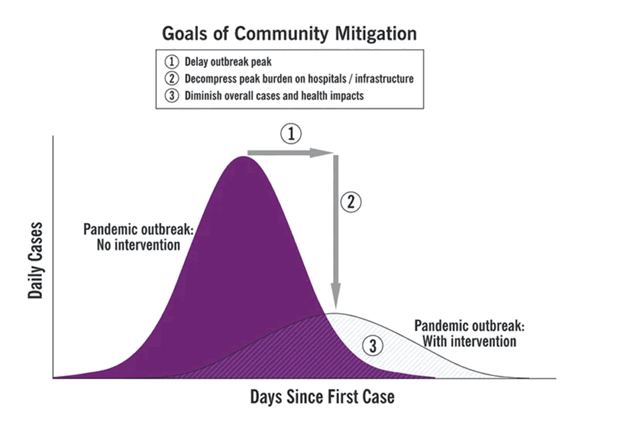Are churches abandoning parishioners when they cancel worship for the sake of the vulnerable?
Oftentimes we must error on the side of caution for the sake of gathering together due to our love for our neighbor. Over the last few weeks, we have been educated at a high price informed by medical experts about how contagious the coronavirus is. We know for example, that if the coronavirus spreads, older adults and those with serious chronic medical conditions like heart disease, diabetes, and lung disease are at greater risk.
Therefore, steps have been implemented to slow down the infection rates at its spreads worldwide. Among the restriction implemented is social distancing at least 6 feet; avoid gathering in large groups; closing parks and canceling events such as musical concerts and this weekend EASTER celebrations at places of worship.
The pastors' job and those of anyone in a leadership position are to take care of those members who are at risk. This is obvious to many and yet others feel that the government is trying to impose its will on the church and are violated the separation of church and state. Some people might be asking, why can’t we just meet and trust God? The answer is that by limiting large gatherings of 10 people or more is one of the many tools we can use to limit the spread of the virus.

If we don’t learn from our past then we are doomed to repeat it. In 1918 there was an outbreak of the Spanish Flu pandemic. The first cases of disease among civilians in Philadelphia were reported on September 17, 1918,” according to the report, “but authorities downplayed their significance and allowed large public gatherings.” By the time social distancing was implemented a few weeks later, the disease had “already begun to overwhelm local medical and public health resources.”
In St. Louis, social distancing was implemented soon after the first cases were reported, dramatically reducing the spread of the disease. As the report concluded, the difference of roughly 14 days in response times represented “approximately three to five doubling times for an influenza epidemic.”
Church leaders face a similar challenge of caring for their people even when it might require difficult decisions of suspending events or gatherings. For many Christians, the very concept of not gathering as the people of God is unacceptable. And yet even in a time like this, we can find gratitude. We live in a time when technology allows us to stay connected in ways once unimagined.
Cellphones allow us to stay connected, videoconferencing and Livestream allow us to stream out sermons. What would it look like, for instance to:
- Create online prayer groups to pray for God to intervene in this crisis?
- Continue meeting in smaller groups online or via Facetime to maintain solidarity?
- Use the times we would be together in church to instead be together with those in our neighborhood who may need extra care?
- Spend time alone with God, asking what lessons we can learn as we are forced to be apart?
- Create a webpage record the sermons and lessons so members can hear the word of God and still feel a sense of connection. .
God will bring us back together, stronger and more unified than ever. And while we are not meeting, we can engage our neighbors — checking on them, particularly those most vulnerable to this disease.
Listen to your health department. See what your local schools do. Consider the age of your congregation. We love gathering in person — with feet and faces — but for now, we may best love our neighbor by gathering via the internet or another online media. Let us never forget that we are the hands and feet of Jesus.
Brothers and sisters the church isn’t abandoning you, the church is being repurposed during this pandemic. The lord is causing us to think outside the box to better serve those in need and remember that you are not alone in this, the holy spirit is with you.
Pastor Ortiz


